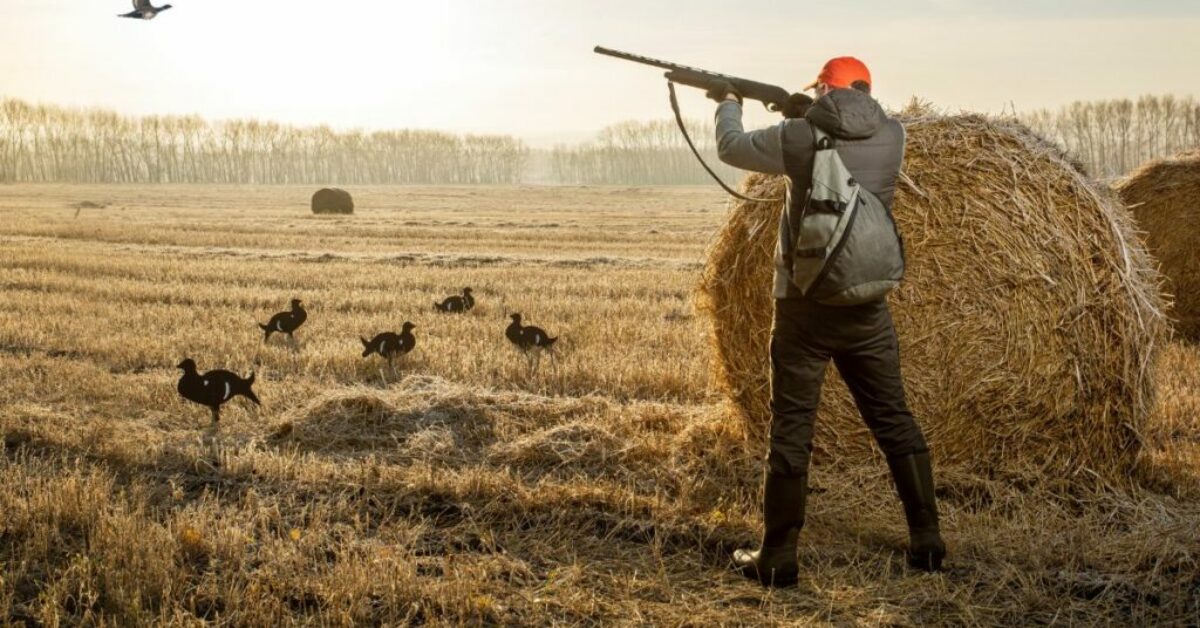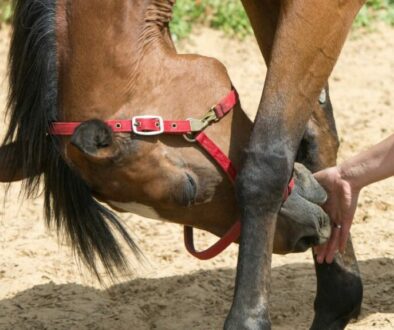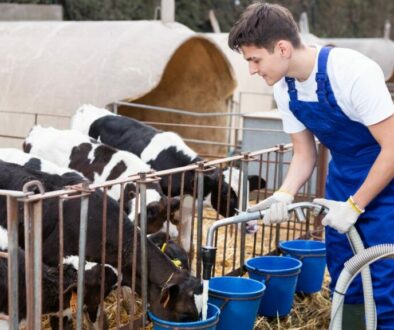How To Become A Hunter?
Hunting is more than a hobby, it’s an adventure. If you’ve ever considered exploring the great outdoors, tracking prey, and harvesting your own game, then becoming a hunter could be the perfect activity for you. Not only is it rewarding, but it also provides an opportunity to connect with nature and improve your self-sufficiency skills.
Steps To Becoming A Hunter
The art of hunting has been practiced for centuries, and it is a thrilling and rewarding experience for those who love the great outdoors. If you are interested in becoming a hunter, there are several steps you need to take to ensure a safe and successful hunt.
- Hunting Regulations
The first step in becoming a hunter is to educate yourself on your state’s hunting regulations. Regulations differ from state to state, and it is imperative to read the regulations closely to avoid breaking the law. It is important to note that hunting laws are in place to protect wildlife and ensure that hunting is done in a safe and responsible manner.
- Hunter’s Course
In most states, hunters must pass a hunter education course before purchasing a license. Hunter education courses provide education on firearm safety, conservation, and hunting ethics. These courses are usually offered by state wildlife agencies or local hunting organizations. They cover topics such as hunting laws, firearm safety, wildlife management, and conservation practices.
- Hunting License
Once you pass the hunter education course, you need to purchase a hunting license. Hunting licenses can be purchased online, at local sporting goods stores, or wildlife agencies. Most states require a separate license for each game species that you plan to hunt. Before purchasing a license, decide on which game species you plan to hunt and make sure to select the appropriate license.
- Hunting Gear
The next step is to acquire the necessary hunting gear. Depending on what game you plan to hunt, you will need firearms or archery equipment, hunting clothing, and other tools such as binoculars, rangefinders, and game calls. It’s important to invest in high-quality gear that will last you for many hunting seasons. When selecting hunting gear, it’s crucial to choose gear that is appropriate for the game you plan to hunt. For example, if you plan to hunt deer with a bow, you will need a bow that is powerful enough to take down a deer.
- Practice Your Shooting Skills
Before heading out on your first hunt, it’s important to practice your shooting skills. Find a shooting range or a safe place to practice shooting your firearm or bow. It’s important to be comfortable and confident with your hunting gear before heading out into the field.
Finally, when you are ready to hunt, make sure to follow all hunting regulations and safety guidelines. Always wear appropriate hunting clothing and gear, and make sure to let someone know where you will be hunting and when you plan to return. Hunting can be a dangerous activity, and it’s important to take all necessary precautions to ensure a safe and successful hunt.
Skills Needed For Becoming A Hunter
Aside from the necessary equipment and licenses, there are certain skills that are crucial for becoming a successful hunter. Firstly, you need to be familiar with the habitat and behaviours of the game species that you plan to hunt.
Knowing the habitat and behaviours of your game species is essential for a successful hunt. For example, if you plan to hunt deer, you should know where they like to feed and bed down. You should also know their migration patterns and the best times to hunt them. This knowledge can be gained through research, scouting, and talking to other hunters who have experience hunting the same species.
You should also be proficient in the use of your firearm or archery equipment. Honing your shooting skills can be achieved through target practice and range time.
Target practice is essential for improving your accuracy and becoming comfortable with your equipment. Range time can also help you become familiar with the different types of terrain you may encounter while hunting, such as hills, valleys, and uneven ground.
Another important skill for becoming a hunter is tracking. Tracking involves observing animal footprints, droppings, and other signs of animal activity, and following them to locate game.
Tracking requires patience and practice as it can be difficult to distinguish between different types of tracks. However, it can be extremely rewarding when you successfully track and harvest big game. It is important to note that tracking should only be done in a legal and ethical manner.
Lastly, hunters are required to have excellent knowledge and skills in first aid and survival techniques. Emergencies can happen in the field, and a hunter must be prepared to handle them.
Having skills in first aid and survival techniques such as building a shelter, finding clean water, and starting a fire are crucial in ensuring your safety and survival in the great outdoors. It is important to carry a first aid kit and emergency supplies with you at all times while hunting.
Becoming a successful hunter requires more than just the right equipment and licenses. It requires knowledge, skill, and practice in a variety of areas, including wildlife behaviour, shooting proficiency, tracking, and first aid and survival techniques. By honing these skills, you can increase your chances of having a safe and successful hunting experience.
What is A Hunter?
A hunter is someone who harvests wild game for food, sport, or conservation purposes. Hunting is a primal activity that has been practiced for thousands of years. In ancient times, hunting was a way of life, and it was essential for survival. Today, hunting is still an important activity, but it has evolved into a sport and a way to connect with nature.
Hunters play an essential role in wildlife management and conservation by helping to maintain healthy wildlife populations. By harvesting animals, hunters help to keep populations in check, which prevents overgrazing and other environmental problems. Additionally, hunters contribute to scientific research by providing data on animal populations and behavior.
Hunting can also have economic benefits by providing jobs and generating revenue through hunting licenses and equipment sales. Hunting is a popular pastime, and it attracts people from all over the world. This creates jobs in the hunting industry, including guides, outfitters, and taxidermists. Additionally, hunting licenses and equipment sales generate revenue for state wildlife agencies, which use the funds to manage wildlife populations and habitats.
Being a hunter requires a dedication to safety, respect for wildlife, and adherence to hunting laws and ethics. Safety is paramount in hunting, as firearms and other hunting equipment can be dangerous if not used properly. Hunters must also respect wildlife by taking only what they need and not wasting any part of the animal. Adherence to hunting laws and ethics is also critical, as it ensures that hunting is done in a responsible and sustainable manner.
Hunters contribute to the preservation of the environment by taking an active role in conservation and habitat management. They work with state wildlife agencies and conservation organizations to preserve and enhance wildlife habitats, which benefits not only the animals but also the environment as a whole. Hunters also help to control invasive species, which can have a negative impact on native wildlife and ecosystems.
Hunting is an important activity that has both cultural and environmental significance. Hunters play an essential role in wildlife management and conservation, and they contribute to the economy by generating jobs and revenue. Being a hunter requires a dedication to safety, respect for wildlife, and adherence to hunting laws and ethics. By taking an active role in conservation and habitat management, hunters help to preserve the environment for future generations.
The Benefits of Working as A Hunter
Besides being an enjoyable and rewarding activity, there are many benefits to working as a hunter. Hunting provides an opportunity to disconnect from technology and reconnect with the natural world. It also promotes physical fitness and mental health by providing fresh air and exercise.
Hunting can also have financial benefits. Game meat is a sustainable source of protein, and many hunters donate excess game meat to food banks and charitable organizations. Additionally, hunting leases can generate revenue for landowners and provide jobs in the outdoor industry.
But the benefits of hunting go beyond just personal and financial gain. Hunting also plays a critical role in wildlife management and conservation. By targeting specific animal populations, hunters help to control overpopulation and maintain a healthy balance within ecosystems.
Hunters also contribute to conservation efforts through the purchase of hunting licenses and equipment. These funds are then used to support habitat restoration, wildlife research, and other conservation initiatives.
Furthermore, hunting can be a way to connect with local communities and traditions. Many cultures have a long history of hunting and view it as an important part of their heritage. By participating in these traditions, hunters can gain a deeper appreciation for cultural diversity and the role that hunting plays in different societies.
Overall, becoming a hunter requires patience, dedication, and a willingness to learn. With the proper education, skills, and equipment, becoming a hunter can be an exciting and fulfilling activity. It’s an adventure that allows you to connect with nature and take an active role in wildlife management and conservation.




